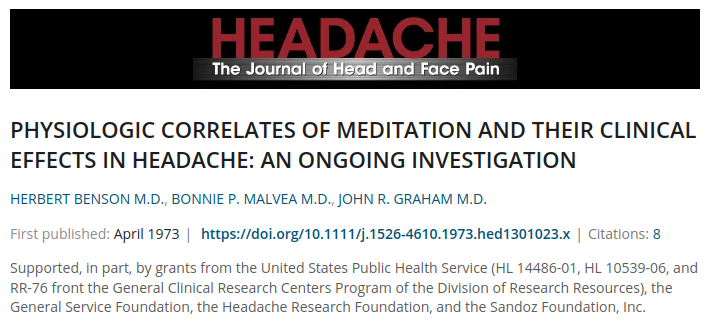Publication
Headache - The Journal and Head and Face Pain
Abstract
Supported, in part, by grants from the United States Public Health Service (HL 14486-01, HL 10539-06, and RR-76 front the General Clinical Research Centers Program of the Division of Research Resources), the General Service Foundation, the Headache Research Foundation, and the Sandoz Foundation, Inc.
Web and Email Links
Related Listings
Journal
NeuroReport
Previous research indicates that long-term meditation practice is associated with altered resting electroencephalogram patterns, suggestive of long lasting changes in brain activity. We hypothesized that meditation practice might also be associated with changes in the brain's physical structure. Magnetic resonance imaging was used to assess cortical thickness in 20 participants with extensive Insight meditation experience, which involves focused attention to internal experiences. Brai […]
Journal
Psychotherapy and Psychosomatics
We have investigated prospectively the efficacy of two nonpharmacologic relaxation techniques in the therapy of anxiety. A simple, meditational relaxation technique (MT) that elicits the changes of decreased sympathetic nervous system activity was compared to a self-hypnosis technique (HT) in which relaxation, with or without altered perceptions, was suggested. 32 patients with anxiety neurosis were divided into 2 groups on the basis of their responsivity to hypnosis: moderate-high an […]
Journal
Global Advances in Integrative Medicine and Health
Mind–body medicine is an evidence-based approach to health and healing that focuses on interactions between the mind, body, and behavior. It encompasses a wide range of interventions that are similar yet different in meaningful ways. Mindfulness and relaxation practices are 2 mind–body techniques that have similarities and differences; however, these techniques are often used or discussed interchangeably, such that the differences between them become obscured. A greater understanding […]

